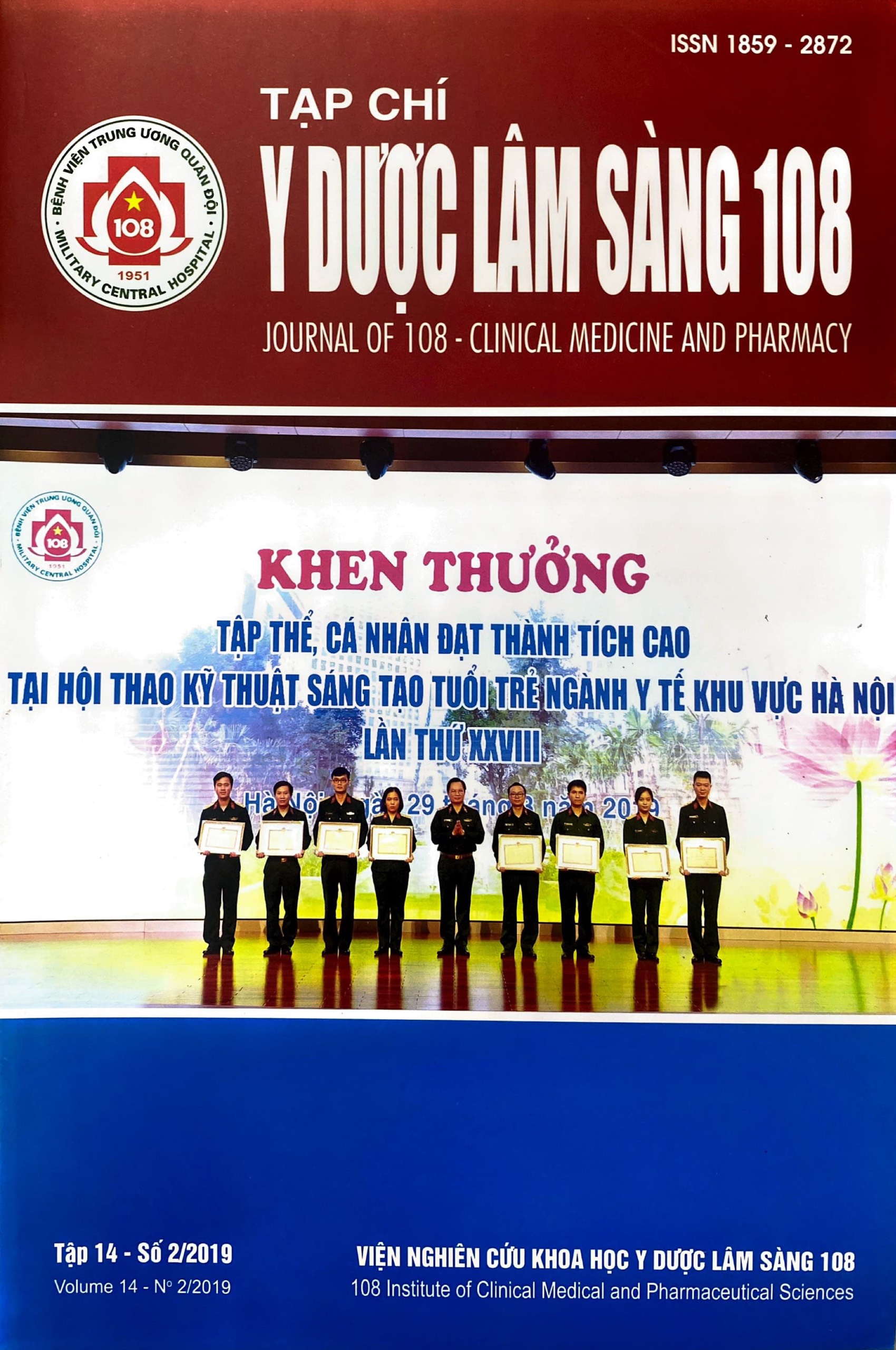Nghiên cứu đặc điểm về rối loạn trí nhớ trên bệnh nhân động kinh là người trưởng thành điều trị bằng phenobarbital
Main Article Content
Keywords
Tóm tắt
Mục tiêu: Mô tả, phân tích một số đặc điểm về rối loạn trí nhớ trên bệnh nhân động kinh cơn co cứng - co giật (cơn lớn) ở người trưởng thành đã và đang điều trị bằng thuốc kháng động kinh phenobarbital. Đối tượng và phương pháp: Nghiên cứu mô tả cắt ngang trên 100 bệnh nhân động kinh cơn lớn ở người trưởng thành. Bệnh nhân được chia làm hai nhóm: Nhóm 1 có 50 bệnh nhân sử dụng phenobarbital tại tuyến y tế địa phương, nhóm 2 có 50 bệnh nhân sử dụng thuốc kháng động kinh cổ điển khác lấy tại Bệnh viện Bạch Mai. Mỗi bệnh nhân được thăm khám lâm sàng về trí nhớ và làm các trắc nghiệm đánh giá chức năng trí nhớ. Sau đó, so sánh kết quả thu được từ mỗi nhóm với nhóm còn lại. Kết quả: Rối loạn trí nhớ trên bệnh nhân dùng phenobarbital chiếm 64% cao hơn 2,46 lần so với nhóm bệnh nhân sử dụng thuốc kháng động kinh khác (36%) có ý nghĩa thống kê (OR = 2,46, CI 95%: 1,1 - 5,5, p=0,028). Rối loạn trí nhớ gặp chủ yếu ở nhóm tuổi khởi phát cơn động kinh dưới 6 tuổi chiếm 95% ở nhóm dùng phenobarbital và 80% ở nhóm thuốc khác, tuy nhiên giữa 2 nhóm không có sự khác biệt có ý nghĩa với p>0,05. Nhóm thời gian dùng phenobarbital trên 5 năm có 74,4% bệnh nhân có rối loạn trí nhớ gấp 3,31 lần nhóm sử dụng thuốc khác trên 5 năm (53,3%) sự khác biệt có ý nghĩa thống kê (OR = 3,31, CI 95%: 1,31 - 8,37, p=0,013). Kết luận: Bệnh nhân động kinh có sử dụng phenobarbital có tỷ lệ rối loạn trí nhớ cao gấp 2,46 lần so với sử dụng các nhóm thuốc kháng động kinh khác. Thời gian dùng thuốc kháng động kinh dài trên 5 năm ở nhóm sử dụng phenobarbital có nguy cơ rối loạn trí nhớ gấp 3,31 lần so với nhóm thuốc kháng động kinh khác.
Article Details
Các tài liệu tham khảo
2. Gomer B, Wagner K, Frings L et al (2007) The influence of antiepileptic drugs on cognition: A comparison of phenobarbital with topiramate. Epilepsy Behav 10: 486-494.
3. Donati F, Gobbi G, Campistol J et al (2007) The cognitive effects of phenytoin versus phenobarbital or valproate in newly diagnosed children with partial seizures. Seizure 16: 670-679.
4. Ortinski P, Meador KJ (2004) Cognitive side effects of antiepileptic drugs. Epilepsy Behav 5(1): 60-65.
5. Farwell JR, Lee YJ, Hirtz DG et al (2009) Phenobarbital for febrile seizures - effects on intelligence and on seizure recurrence. N Engl J Med 322: 364-369.
6. American Psychiatric Association (2000) Diagnostic and statistical manual of mental disorders. DSM- IV-TR, 4th ed, Washington.
7. Meador KJ, Gevins A, Loring DW et al (2007) Neuropsychological and neurophysiologic effects of phenobarbital and levetiracetam. Neurology 69: 2076-2084.
8. Salinsky MC, Binder LM, Oken BS et al (2002) Effects of phenobarbital and carbamazepine on the EEG and cognition in healthy volunteers. Epilepsia 43: 482-490.
9. Helmstaedter C, Kurthen M (2001) Memory and epilepsy: Characteristics, course, and influence of drugs and surgery. Curr Opin Neurol 14(2): 211-216.
10. Meador KJ, Loring DW, Moore EE et al (2005) Comparative cognitive effects of phenobarbital, phenytoin, and valproate in healthy adults. Neurology 45: 1494-1499.
11. O’Leary DS, Lovell MR, Sackellares JC et al (2009) Effects of age of onset of partial and generalized seizures on neuropsychological performance in aldults. J Nerv Ment Dis 17: 624-629.
 ISSN: 1859 - 2872
ISSN: 1859 - 2872
